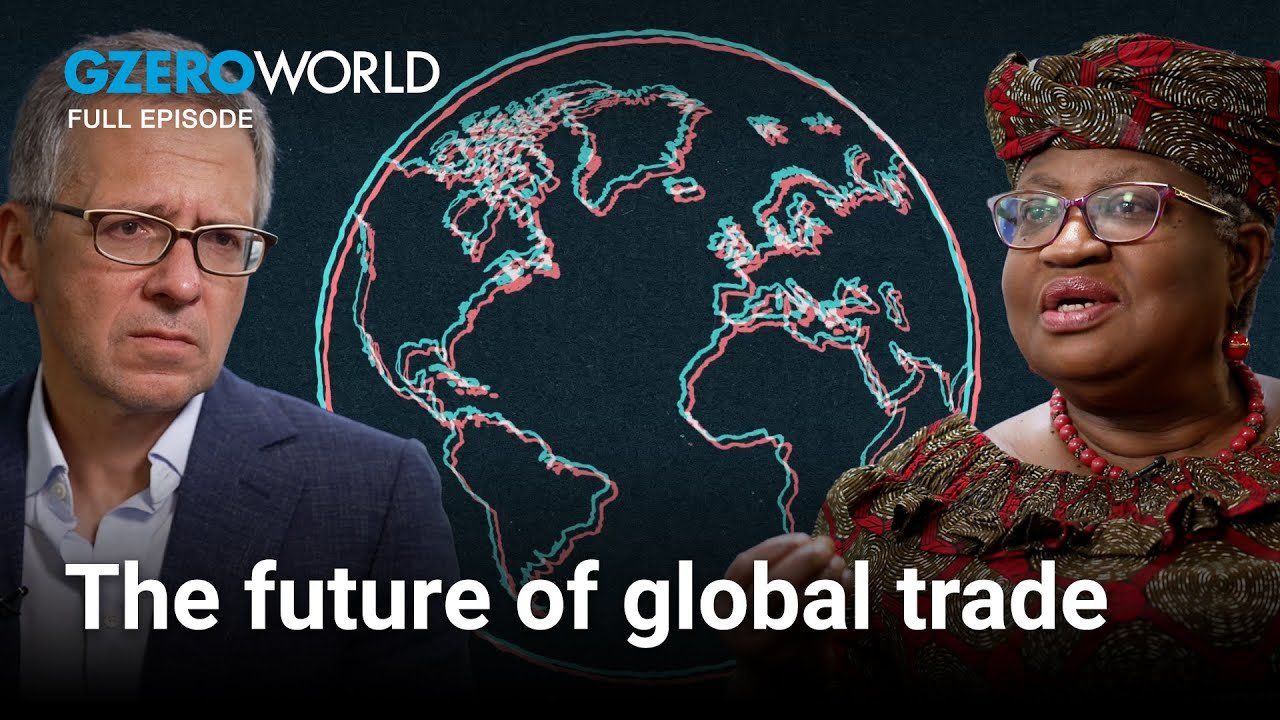GZERO World with Ian Bremmer
World trade at risk without globalization, warns WTO chief Ngozi Okonjo-Iweala

World trade at risk without globalization, warns WTO chief Ngozi Okonjo-Iweala | GZERO Media

On GZERO World, Ian Bremmer sits down with WTO Director-General Ngozi Okonjo-Iweala to talk about world trade, the complicated business of moving goods and services across borders around the world.
Global trade hit a staggering $32 trillion in 2022 and the World Trade Organization oversees 98% of it. It’s an international institution that doesn’t normally make headlines, but has a massive role in almost every aspect of your daily life—from the food you eat, to the clothes you wear, to the cars you drive, to the phone you’re probably using to watch this video.
The WTO is the referee of global trade, a place for countries to negotiate agreements and resolve disputes. But it’s also received criticism for being too slow to adapt to the modern economy and for favoring wealthy nations over countries in the Global South.
Okonjo-Iweala has been pushing members to recommit to the principles of globalization and invest in developing economies.
“It's not right that 10 countries export 80% of the vaccines in the world,” Okonjo-Iweala says, “It's too concentrated.”
She argues that by decentralizing and diversifying global supply chains, we can make the global economy more resilient, reduce monopolies, and bring countries left on the margins of world trade into the mainstream.
With close ties to both the US and China, can Singapore survive in an increasingly fragmented and chaotic world? Singapore’s President Tharman Shanmugaratnam joins Ian Bremmer on the GZERO World Podcast.
Think you know what's going on around the world? Here's your chance to prove it.
This week, Prime Minister Keir Starmer became the first UK leader to visit China in eight years. His goal was clear: build closer trade ties with Beijing.